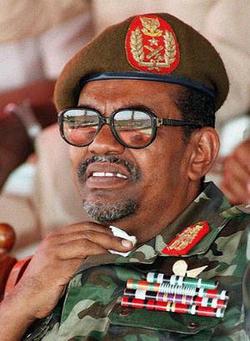suu kyi protest
An Amnesty International protester holds a portrait of Aung San Suu Kyi in Hong Kong today. Photograph: Mike Clarke/AFP/Getty Images
Burma's ruling military junta today went back to barring the media and diplomats from the trial of the opposition leader Aung San Suu Kyi after she appeared in public yesterday for the first time in more than a year.
Suu Kyi is accused of breaking the terms of her house arrest by allowing an American visitor, John Yettaw, to stay at her home without permission after he swam across a lake to visit her home uninvited.
In a surprise concession yesterday the Burmese government allowed outsiders to observe the third day of the trial. It meant that reports of the proceedings and Suu Kyi's meeting with diplomats were shown prominently on state-run television and in government newspapers.
Suu Kyi appeared to be in good health. The state's mouthpiece, the New Light of Myanmar newspaper, said she was seen by two doctors and a heart specialist. It also said that she admitted allowing Yettaw to spend a night in her home.
Censorship of the trial resumed today, fuelling a belief that the charges are trumped up to silence the pro-democracy leader ahead of next year's state-managed elections. She has been in detention without trial for more than 13 of the past 19 years.
The trial was prompted by the bizarre incident earlier this month when Yettaw swam across to Suu Kyi's house. She is standing trial with two female members of her party, her sole companions under house arrest, and Yettaw.
Yesterday Yettaw suggested to the court that he had a premonition that Suu Kyi was at risk of being killed, according to Nyan Win, a spokesman for Suu Kyi's National League for Democracy party who attended the proceedings.
"In my vision, Aung San Suu Kyi will be assassinated, so I came here," he said.
Suu Kyi's lawyers have said that she told the uninvited guest to leave, but allowed him to stay after he said he was too ill and tired to leave immediately.
Debbie Stothard, coordinator of the regional rights network Alternative Asean Network on Burma, said opening up the trial "was definitely a stunt by the regime to stave off pressure so they can proceed with their kangaroo court to jail Suu Kyi".
She added: "They wanted to say they are not ill-treating her, so go away. You don't need to see the rest. It also means the regime doesn't have a strong case against Suu Kyi and has no grounds to proceed."
A Philippines diplomat, Joselito Chad Jacinto, said Suu Kyi was alert, healthy and "exuded a type of aura which can be described as moving, quite awe-inspiring".
But diplomats said they had not changed their opinion of the trial simply because they had been allowed to attend. Most assume the special court in Yangon's Insein prison will find Suu Kyi guilty.
"The access we had today was welcome, but doesn't change the fundamental reality," the British ambassador to Burma, Mark Canning, told the BBC. "All the paraphernalia of the courtroom was there – the judges, the prosecution, the defence. But I think this is a story where the conclusion is already scripted."
Suu Kyi, who is being held at Burma's notorious Insein prison along with scores of other political prisoners, had been scheduled to be freed on 27 May. The charges are widely seen as a pretext to keep her in detention.
Members of Yettaw's family describes him as a well-intentioned admirer of Suu Kyi who merely wanted to interview her and was unaware of the possible consequences.
Suu Kyi's supporters have expressed anger at him for getting her into trouble. His actions have struck many as naive and eccentric, an impression only hardened by the evidence that has come out at the trial.
Rest of your post
Sunday, May 24, 2009
Burma junta bars media
Subscribe to:
Post Comments (Atom)






















No comments:
Post a Comment